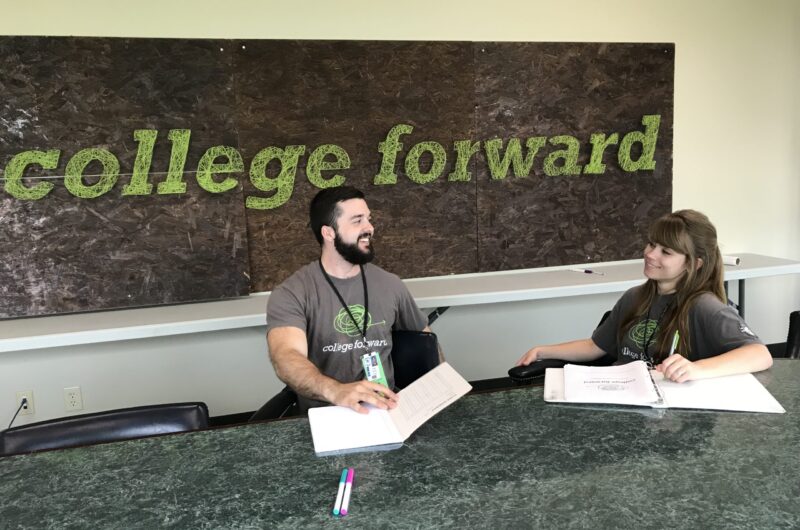Getting accepted into college is just the first step. This college journey that you are about to begin is an exciting and life-changing experience. The journey begins with many experiences that will be your first and new—living on your own, new expectations and responsibilities, and seeing new people every day. Such changes can be overwhelming; thus, adjusting to different aspects of life is the key to survive in college. A secret weapon to succeed in college is knowing how to study. Here are five tips on studying, so you know what to expect after making that transition from high school to college.
1. Get organized
Your life as a college student will be busy. There is so much to do, and if you’re not organized, you may feel like you are not on top of things. In high school, your teachers are around to help you get and stay organized. Teachers in high school might have a place for student’s notebooks. Additionally, the notes provided are typically in an organized format, so it is easier for students to learn. Thus, as a high school student, you may have to worry very little about such things. However, things are different for college students.
It helps to be tidy
In college, most professors just lecture, and everything else is up to you. It is crucial to organize your things, including your personal and academic materials. For example, tidying up your study table by putting things away helps you focus. Taking notes is essential to comprehend and retain information from lectures. However, just taking notes is not enough. The notes have to be organized to actually get the most value out of them. This may mean having different notebooks for each class so you can refer back to the whole semester’s worth of notes during midterms and finals.
Digital notetaking options
If you prefer a digital way of note-taking and keeping, I recommend exploring apps such as Evernote, Notes in Apple products, and Microsoft OneNote in which you can look into to type your notes and put them into different folders and files. Handwritten notes are also a valid option, in fact, research shows that this can help you process the information better.
Worried about losing the notes on paper? After writing, you can digitize those notes by scanning them and organizing them into a folder online. This process will allow you to review and study the materials much more quickly and efficiently. In addition, to keep any physical class materials organized, you should either have a binder with tabs or pocket folders to keep them safe and in place. If you are a visual person, you can use a color-coded system to keep assignments and notes organized.

2. Plan, Plan, Plan
High schools have a specific schedule where you are in a building, most classrooms, for about seven classes a day. All you need to do is follow a set schedule every day. According to the STEPP Program, the study times outside school day is about 1–3 hours per week per class, and a last-minute preparation may be enough for some classes. On the other hand, the STEPP-Program states that college students generally need to study for at least 2–3 hours outside of class for each hour in class. This means that if a student is taking a 12-hour course load a semester, they will require 24–36 hours of studying per week to do well on the courses.
In college, you can expect to be in class for about half of the high school classroom time. The rest of the day is completely up to you. Having a planner and schedule to know how you are going to spend that time is crucial to be productive in a day. You can record and save all your upcoming meetings and events on your calendar and have a reminder set before the time of the event, so you don’t forget what and where you are supposed to be.
Writing things down as a to-do list or even breaking tasks or topics down by hours and minutes is a great use of a planner. Since it is up to you to study the material presented during the lecture, you can use your planner to break down study times for each class every day to stay on track with the course material. Some popular planning and organizing options are bullet journals, google calendar, and apps like Asana. It is important to budget and plan your breaks in terms of duration and frequency of the study period.

3. Manage your reading and workload
High school provides all the textbooks needed, and in some classes, you don’t even have to touch a textbook for the entire year because teachers layout important information for students. In college, your professor may tell you to read a chapter before class, or you may have to read in order to fully understand the concepts. The aspects of class that require focus will vary depending on the type of professor and how the class is structured. There are courses where the exams are solely based on details from the book, and professors may assign readings for tests that are not covered in lectures as well. Book readings are essential and beneficial in many courses; thus, you should stay on top of them. This way, you don’t find yourself struggling to catch up.
Last minute work won’t do
It is possible to skate by and get decent grades in high school without doing a ton of work. Many students squeak out decent grades by cramming materials on the same day of the test or doing homework last minute. This does not work in college. As mentioned before, you are only in classrooms for a fraction of your day, and the rest of your time is to be used to decrease your workload, including homework, studying, research papers, essays, presentations, and group projects. Most assignments have deadlines that are outlined and tests that are specified in the syllabus.
Grades vary by course
Since you will receive a syllabus for every course at the beginning of the semester, you will have plenty of time to review and look over things as a big picture for the whole semester. The syllabus for each class will vary depending on the type and structure of the course. Each class may have different grade distribution, which is reflected by the assignments and exams planned. The grade distribution may look like four exams in total, each 25% worth of your total grade. Such an example can be seen in content-based subjects such as chemistry and genetics. Another example could be an English course where you will have a bunch of papers to write throughout the semester, and there may be some group projects. In this case, grade distribution would look like 15% each for four papers and 20% for 2 group projects. To keep up with materials, study every day and don’t cram at the last minute if possible!

4. Study smarter, not harder
First of all, it is important to know yourself and what works for you. As a high school student, teachers may have all the content ready in an outlined sheet, and you just have to fill it out and go over it. After going to college, however, figuring out your learning habits and ways to better grasp the information helps you become an effective learner. You may have to try out various methods to find the best way that fits you and your needs in learning.
Proven study tips
When you are studying, there are certain ways that are proven by research to be better, such as those from The Learning Center at the University of North Carolina. They state that these include teaching others helps you learn quickly, eliminating any distractions and not multitasking, asking questions, and quizzing or testing yourself after studying. More ways to learn faster is by practicing more to decrease test anxiety, connecting academic content to what you already know, simplifying and compressing the information, and reading out loud.
Key lecture points to note
You should also pay attention to any emphasis by listening for points that your professor stresses and repeats. Look for any bold words in the presentation or textbooks. During lectures, professors might spill some extra information like what will be on the exam or what won’t, so listen to them. You can save some time by not studying the wrong information, and it’ll help you focus on ideas that may be on the exam. If there is still some confusion or if you feel overwhelmed by the details, ask your classmates / friends first, then send a quick email to your TA or professor either asking your question or to make an appointment to talk to them.

5. Take care of yourself
Meanwhile, do not forget about yourself! Take breaks while studying because it will help you feel better, improve your focus, and enhance overall productivity. Before you begin studying, set a specific reward for completing your session. You will look forward to this reward and stay motivated throughout your study session. You may forget some general things at times since school keeps you busy, but it happens! So make sure to remind yourself to get enough sleep, stretch, and exercise to stay physically active, eat healthily, drink lots and lots of water, socialize, and feel your emotions.
You may also want to find other ways to recharge yourself. This may include reaching out and spending time with people that you care for, whether that is with friends, family, or roommates. Make sure to surround yourself with people who will care and support you when you need them the most. Being around and talking to people may help you release any bottled-up feelings and reduce your stress levels. If you have anything you enjoy, spend some time doing that activity. Self-care can prevent burnout, increase your energy and contentment, and allow you to be at your best and most confident shape at any time.


